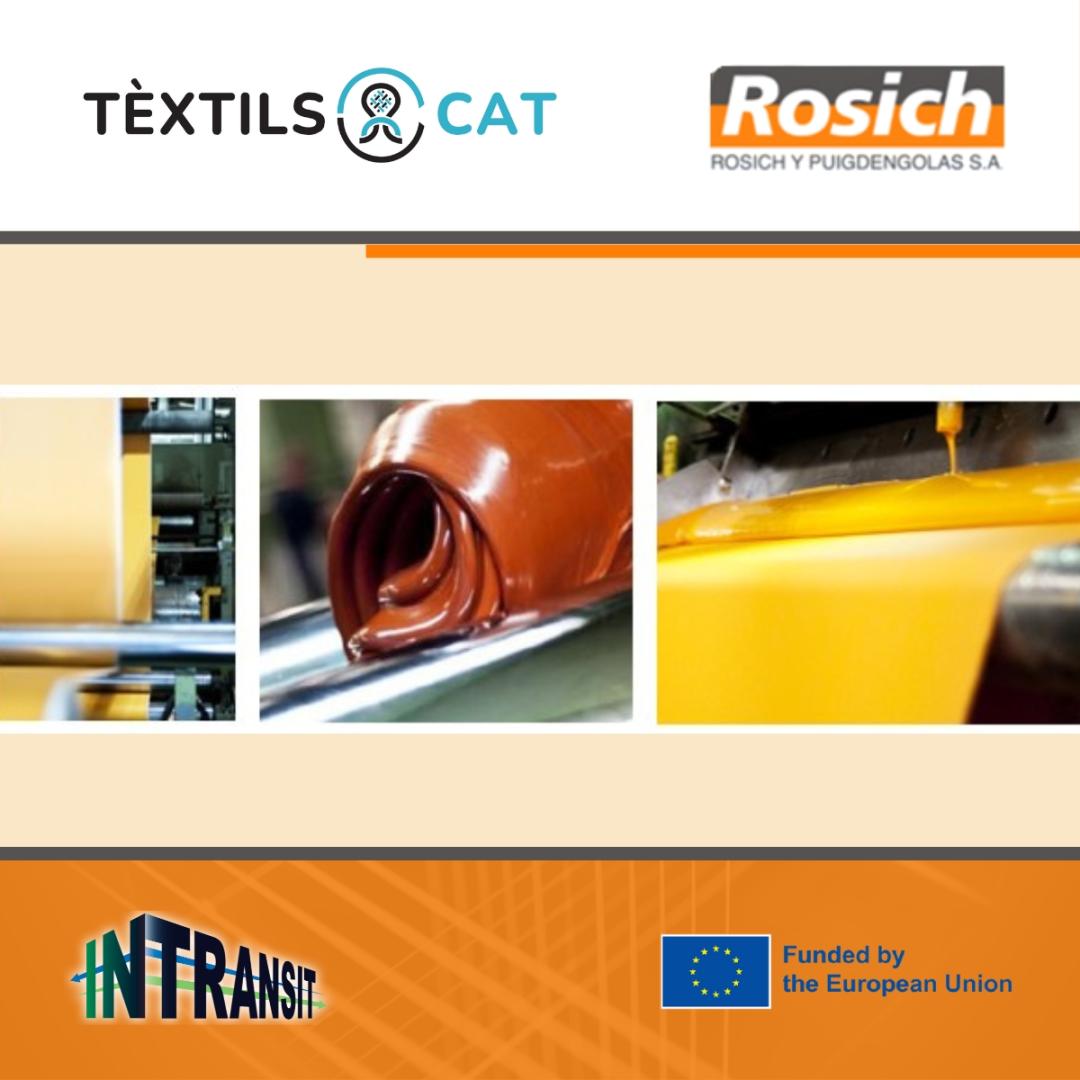Rosich successfully completes CleanCoat project, turning textile coating waste into a sustainable resource

Tèxtils.CAT member Rosich y Puigdengolas, S.A. has successfully completed the CleanCoat project, a groundbreaking initiative aimed at reducing waste and promoting sustainability in textile coatings. The project has developed an innovative process to separate and recycle elastomer coating mixture waste.
With support from the In Transit project, CleanCoat has transformed waste from Rosich’s textile coating lines into valuable materials that can be reused in production. Instead of being destroyed due to batch variability, this recovered waste can now be reintegrated, significantly improving resource efficiency and environmental impact.
The CleanCoat project tackled one of the biggest challenges in textile manufacturing: coating waste disposal. The initiative focused on:
Separating and recovering solvent and solid waste, particularly organic solvent and elastomer components.
Developing a validated process for reintroducing these materials into production.
Exploring alternative uses for solid rubber waste, including sustainable fuel for the construction industry.
The project not only reduces industrial waste but also brings economic benefits by lowering raw material costs and aligning with strict environmental regulations.
The project was carried out in close collaboration with Tèxtils.CAT, the advanced textile materials cluster in Catalonia. Their expertise in sustainable textile solutions was crucial in ensuring the successful implementation of the CleanCoat process. This partnership strengthens the potential for further innovations in resource-efficient textile production.
The project’s success reinforces Rosich’s commitment to a circular economy, minimizing waste while maintaining high-quality production standards.
In Transit aims to promote the resilience of SMEs in the textile, aerospace, advanced manufacturing, and construction sectors by making them greener and more digital with a social and business model. This has been coupled with a mixed support mechanism that includes individual assessment support, financial support and advice to ensure consolidation and sustainability.